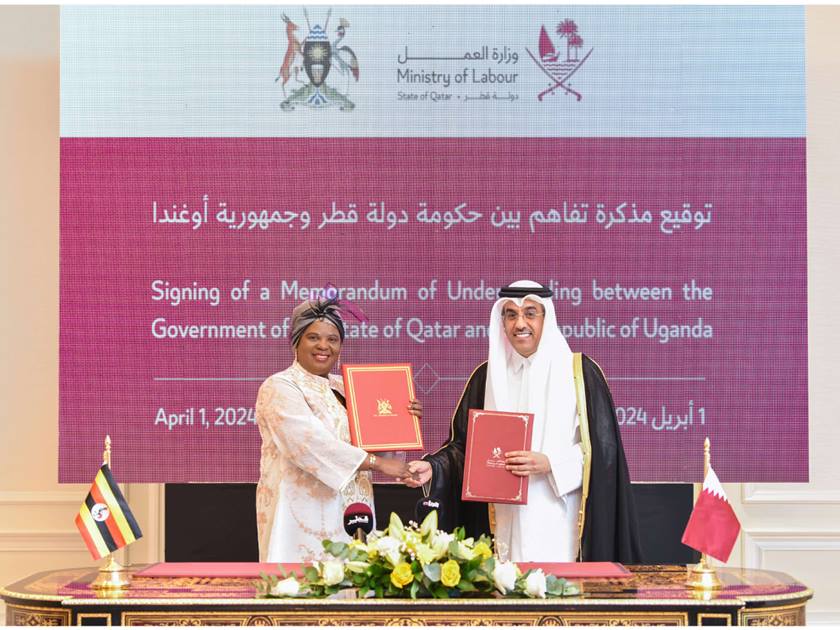Skilled, semi-skilled, domestic workers, the welfare of workers, and health insurance were some of the points covered in the deal, the Ugandan official detailed.
Qatar and Uganda inked an agreement on Monday for the organisation of labour recruitment from Uganda.
The deal was signed by Qatar’s Minister of Labour Ali bin Smaikh Al Marri and Uganda’s Minister of Gender, Labour, and Social Development Betty Amongi.
The pact is seen as a strategic move by Qatar’s Ministry of Labour to attract skilled and qualified labour, boosting their footprint within the local job market. It aims to uplift the private sector’s productivity while also refining the working environment.
Central to the agreement is the streamlining of procedures for recruiting skilled labour from Uganda, thereby catering to the demands of Qatar’s local market.
The accord will also entail a comprehensive review of job opportunities within Qatar, assessing the requisite skills, experiences, and specialisations available in Uganda.
In a social media post, Amongi further detailed that the Bilateral Labour Agreement includes “skilled, semi-skilled & domestic workers. Welfare of workers, health insurance, terms & conditions of worked Etal, embedded,” adding that the joint technical committee will meet in May.
Qatar’s labour recruitment request
In March, the International Labour Organization (ILO) extended its technical cooperation programme with the Qatari government for another four years, marking a continued commitment to deepening labour reforms within the country.
This includes focusing on labour mobility, wages, workers’ representation, and safety standards, as well as adapting to the evolving dynamics of Qatar’s labour market through policies promoting skills development, various visa options, and innovative work arrangements such as teleworking.
The Gulf country achieved a watershed moment in history after announcing major systematic reforms since it won the bid to host the World Cup back in 2010, working together with ILO, which set up an office in Doha, to push for massive changes.
Global organisations have also acknowledged the Gulf country’s significant strides in its labour laws.
Its labour reforms were viewed as a role model for other nations to adopt and follow, according to the director-general of the ILO Gilbert Houngbo.
Law firms have even laid out key “lessons” from Qatar for employers with workforces in Gulf countries. According to law firm Fisher Phillips, employers around the Gulf region should create workplace regulations that adhere to local employment law requirements as well as ILO standards.
“The groundbreaking labour reforms are a positive step forward for Qatar, the Gulf and the Middle East more broadly,” the law firm argued.
“The reforms show that change is possible and will hopefully be a model for other countries in the region to follow.”
It went on to list four lessons that can be deduced from the Gulf country’s expertise, including the dismantling of the Kafala system, the heat regulations put in place, the complaints programme, and the non-discriminatory wage programme.







